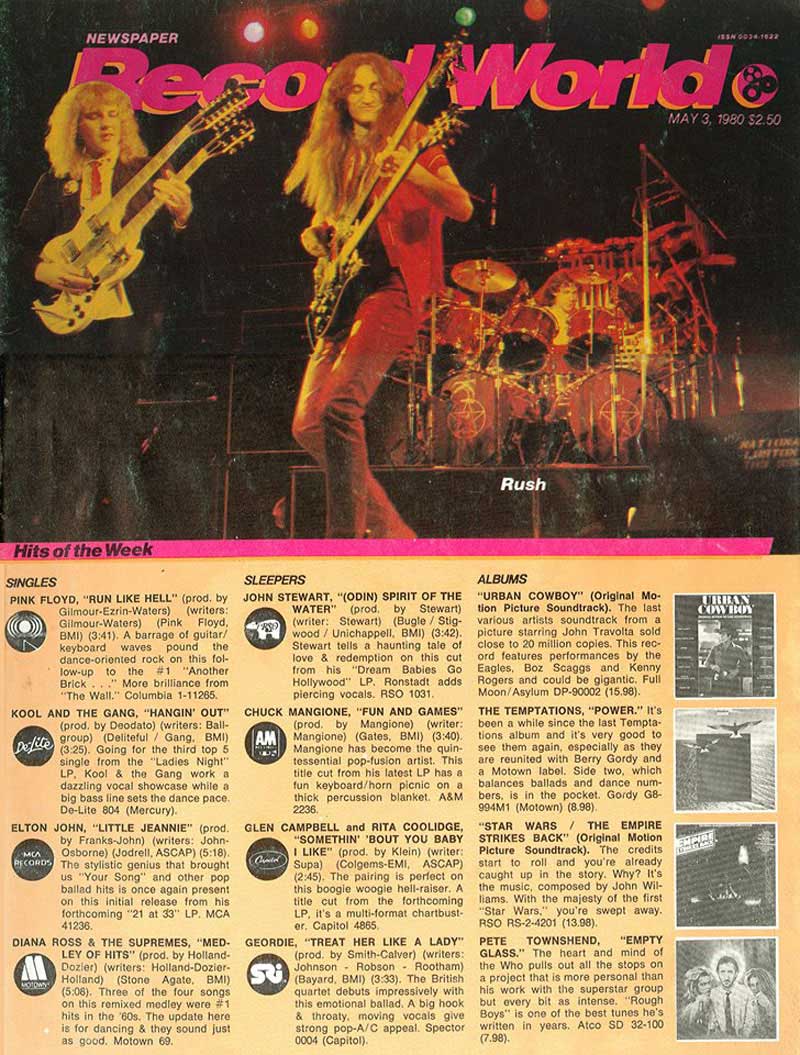Rush - Heavy Metal Standard Bearer
Record World, May 3, 1980, transcribed by pwrwindows

For Rush, the heavy metal power trio from Canada, success hasn't come easily. From its inception in 1969 through lean years of record company rejection and the discouraging reviews, Rush has maintained an undying belief in its music and a total dedication to the growing number of fans whose ranks now have translated into Rush's first top 10 album, "Permanent Waves."
The success of "Permanent Waves" is somewhat of a surprise coming at a time when demographics show that the teenage population is shrinking - the age group that's been the center of Rush's adulation - and when critics have been sounding the final death knell for heavy metal in the wake of new rock. From the time bassist and lead vocalist Geddy lee and guitarist Alex Lifeson were inspired, as teenagers in Toronto, by Led Zeppelin to try and create a heavy metal dream, Rush has always defied the odds. Thus it was not much of a surprise to Lee, Lifeson and drummer-lyricist Neil Peart when "Permanent Waves" entered the RW Album Chart as Chartmaker on February 2.
Rush approached the recording of "Permanent Waves" in a totally different manner from its six previous albums. Although the trio had already earned two Juno Awards for Best Group of the Year (the Canadian equivalent of a Grammy) and four certified gold albums in this country, the reluctance of American AOR and top 40 radio to play its records - especially singles which were termed too raw, conceptual, and lengthy - denied them the megaseller and superstar status they craved. In order to change all that, Lee, Lifeson and Peart for the first time in five years took a substantial vacation before going into the studio. "The advantages of a rest between touring and writing new songs are probably readily apparent and certainly proved themselves to us in the making of 'Permanent Waves'," said Peart. Written and rehearsed in the wilds of Canada's Georgian Bay; recorded at the Sound Kitchen in Toronto and Montreal's Le Studio; and mixed at Trident in London's Soho district; "Permanent Waves" reflects the patience and diligence of the group.
A Delicate Balance
The first single from the album, "The Spirit Of Radio" was a RW Cover Pick that later became Rush's first hit, gaining across-the-board acceptance from top 40 radio. After ten years of power chords, futuristic themes and high voltage guitar leads, Rush has achieved a happy and acceptable balance between artistic dreams and commercial viability. A triumphant example of the advantages of hard work and perseverance, Rush is a standard-bearer of heavy metal rock and its commercial viability.